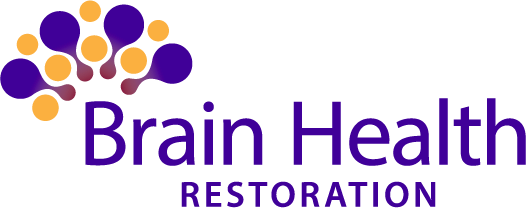Whether you are experiencing brain fog or mild recall impairments, it is frustrating when we know our minds are not operating at our optimal levels.
Our bodies are complex and the potential causes, or combinations of causes, are vast and vastly individual. Your mental depreciation can be caused by vitamin deficiencies, lack of sleep, hormonal imbalances, food allergies, inflammation, leaky gut…just to name a few. Uncovering and treating the sources causing murkiness in your brain can be accomplished by meeting with a medical professional experienced in these areas.
But because brain health is a whole-body-system challenge puzzle, let’s focus strictly on how brain stimulation, in combination with addressing the other concerns with your MD, ND or functional medicine practitioner, can help sharpen your most valuable tool.
New Technology and Findings – TMS
Dr. Daniel Press, a neurologist with the Berenson-Allen Center for Noninvasive Brain Stimulation at the Harvard-affiliated Beth Israel Deaconess Medical Center says, “Brain Stimulation, if used carefully and safely, looks promising, especially if combined with other therapies.”
Because of increasing innovation and excitement around brain stimulation in the treatment of so many diseases and symptoms, there have been scores of studies evaluating the effect of transcranial magnetic stimulation (TMS) or transcranial direct current stimulation (tDCS) on people’s ability to perform mental tasks. Many of these studies measure effects on the brain’s ability to recall lists of unrelated words, math problems, discern visual patterns to name a few.
Overall, the results look promising, especially when combined with other brain training techniques like name recall and learning new skills. For example, in the early stages of mild Alzheimer’s disease, TMS, combined with cognitive exercises can be used to improve brain function. 1
Noninvasive Brain Stimulation (NIBS)
As non-invasive therapies, there are two basic categories of NIBS as outlined below. In both cases, treatments produce a targeted electrical current in the brain, basically reawakening and connecting neural pathways that may enhance cognitive function.
Transcranial Direct Current Stimulation (tDCS): There are a handful of devices in this category that utilize electrodes placed on the scalp to deliver constant, low electrical current to specified areas of the brain.
By targeting the neural networks related to mental focus and memory, studies using in tDCS emphasize the lean toward more efficacy of repeated treatments versus one-time applications. Studies indicate that longer-lasting positive cognitive effects occur (without an increase in side effects) when the treatment is combined with cognitive-behavioral training.2
Repetitive Transcranial Magnetic Stimulation (TMS or rTMS): By placing a magnetic coil against the skull at a prescribed location, magnetic pulses stimulate nerve cells in the region of the brain where the coil is located. Often used in the treatment of depression and anxiety and ADHD treatment is most effective when combined with additional medical/psychological protocols.
Although TMS is not a brand new technology, fewer conclusive studies are specifically on focus and clarity has been performed. However, promising early results in cognitive decline and ADHD studies, along with the benefits of other brain stimulation therapies give good indications of future success.
Brain Health Restoration clinic offers Magnetic EEG/EKG Guided e-Resonance Therapy (MeRT℠), a fully customized treatment protocol using the FDA-approved TMS machine with an expected benefit of mental clarity and focus. To find out more or to see MeRT℠ might help you clear your mind, please contact us here.
1 “Can brain stimulation aid memory and brain health?” August 2015. Harvard Health Publishing. https://www.health.harvard.edu/mind-and-mood/can-brain-stimulation-aid-memory-and-brain-health
2 Abagis, Tessa. “How Brain Stimulation Can Boost Memory if Paired with Learning.” 23 March 2018. SingularityHub. https://singularityhub.com/2018/03/23/how-brain-stimulation-can-boost-memory-if-paired-with-learning/

